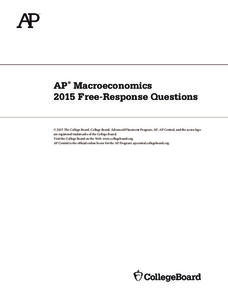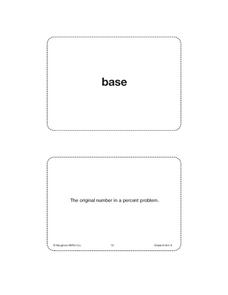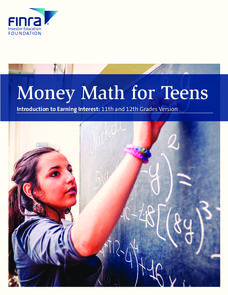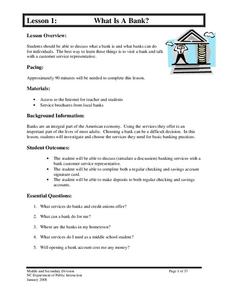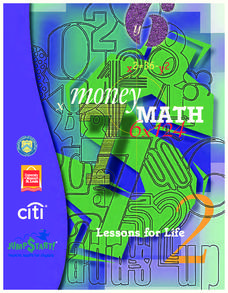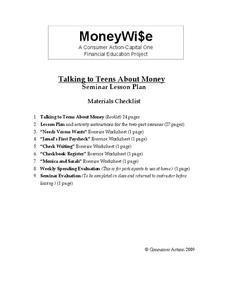College Board
2012 AP® Macroeconomics Free-Response Questions
A fictional country is facing tough economic times and has a few options to tinker with the economy. Which is the best path forward? Scholars consider the best way to reverse a recession using materials from College Board. Other queries...
College Board
2013 AP® Macroeconomics Free-Response Questions
While inflation is an expected part of the economy, how does it affect other factors, such as loan and interest rates? Learners consider questions such as these in authentic College Board materials. Other practice questions include...
College Board
2015 AP® Macroeconomics Free-Response Questions
Currency exchange is a big factor in governments making economic decisions. Scholars consider various scenarios to evaluate how factors such as interest rates and private investments would affect a nation's economy using a practice test...
College Board
2018 AP® Macroeconomics Free-Response Questions
When recessions happen, they impact markets around the world. Scholars explore the effects with a prompt from the College Board exam. Other analytical exercises include evaluating the trade-offs that happen when societies produce...
College Board
1999 AP® Macroeconomics Free-Response Questions
Gross domestic product can be a telling indicator about the health of a country, but it has limitations. Learners examine common indicators using structured prompts and problem sets from the College Board. Other practice problems include...
College Board
2001 AP® Macroeconomics Free-Response Questions
The European Union has had a profound effect on world economic dynamics. A structured inquiry investigates its impacts on global interest rates. Other authentic testing materials from College Board explore banking reserve requirements...
College Board
2002 AP® Macroeconomics Free-Response Questions
Imagine the United States is experiencing an unusually high unemployment rate. What options does the federal government have to kick-start the economy? Learners consider the question with a structured prompt. Other questions examine...
Council for Economic Education
Calculating Simple Interest
How much is owed? A calculated resource introduces the simple interest formula with a video that describes how to use it. Classmates then show what they know by answering questions within a simple interest worksheet.
Concord Consortium
Zero Coupon Bond
There are zero reasons not to learn about zero coupon bonds. Given information about the interest rate and closing price of a zero coupon bond, future investors determine the purchase price of the bond. They then consider the...
Council for Economic Education
Loan Amortization - Mortgage
When you buy a home for $100,000, you pay $100,000—right? On the list of important things for individuals to understand, the lesson presents the concept of interest rates and loan amortization using spreadsheets and online sources....
Federal Reserve Bank
The Story of the Federal Reserve: High School Lesson Plan
Is there a bank for the banks? Pupils analyze the complexities of the Federal Reserve system by breaking it down into easy-to-understand sections. Step-by-step investigation using flow charts and graphs of how the monetary system works...
CK-12 Foundation
APR and APY: APR vs. APY
Who wins the battle of the interest rates? Scholars use an interactive to investigate three different bank rates. Comparing APR and APY lets them see how nominal and effective rates differ.
Federal Reserve Bank
Lesson 4: Back to School
Based on your current level of human capital, how long would it take you to earn $1,000,000? What about your potential human capital? Learners explore the importance of education and experience when entering the workforce, and compare...
Federal Reserve Bank
Lesson 3: A Fresh Start
The members of your economics class may be busy earning graduation credits, but the credit they should be concerned about is their financial credit. The third lesson in a unit about Hurricane Katrina and other events that can result in...
EngageNY
Percent Rate of Change
If mathematicians know the secret to compound interest, why aren't more of them rich? Young mathematicians explore compound interest with exponential functions in the twenty-seventh installment of a 35-part module. They calculate future...
School Improvement in Maryland
Monetary Policy
As an introduction to monetary policy, groups investigate and evaluate the effectiveness of current monetary and fiscal policies on promoting full employment, price stability, and economic performance. They then apply monetary tools to...
Houghton Mifflin Harcourt
Unit 6 Math Vocabulary Cards (Grade 6)
Fifty-eight flashcards make up a set designed to reinforce math vocabulary. Within the set, you'll find bold-faced word cards as well as definition cards that offer a labeled example. Terms include base, percent, theoretical probability,...
SaveandInvest.org
Introduction to Earning Interest: Grades 11-12
Does your bank pay you for allowing them to hold your money? Class members investigate three different ways money can make more money. Topics include certificates of deposit, statement savings accounts, and money market accounts. This...
SaveandInvest.org
Introduction to Earning Interest: Grades 9-10
Does your bank pay you for allowing them to hold your money? The lesson covers three different ways your money can make money. Topics include certificates of deposit, statement savings accounts, and money market accounts.
North Carolina Department of Public Instruction
What Is A Bank?
You're never too young to learn about banking and personal finance. Use a set of seven banking lessons to teach middle schoolers about checking and savings accounts, interest rates, loans and credit cards, and safety deposit boxes.
University of Missouri
Money Math
Wouldn't your class members love to become millionaires? It doesn't happen overnight. Teach young entrepreneurs about personal finance and money management with a series of lessons focused on money math. Pupils learn about banking and...
Consumer Action
Talking to Teens About Money
Your teenagers are probably very good at spending money, but how good are they at managing it? Teach class members about banking, checking accounts, interest rates, car insurance, and many other relevant concepts with a series of...
Practical Money Skills
Saving and Investing
You have to have money to make money, especially in the world of banking and investments. High schoolers learn about interest rates, saving and investment options, and ways to stay aware of their money's security and earning ability with...
Practical Money Skills
Making Decisions
Money represents decisions: spending decisions, saving decisions, and investing decisions. Encourage young adults to think about the decisions they make with their money in a three-day unit about personal finance, consumer spending, and...




